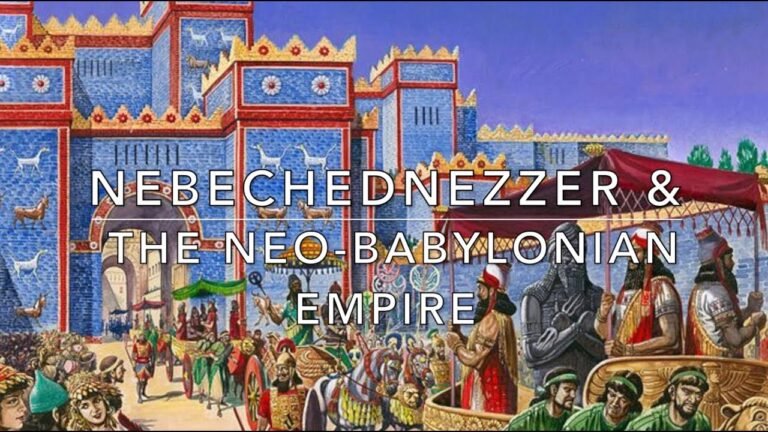The Legacy of Abraham’s Son
The story of Abraham’s son is a powerful narrative that transcends time, exploring themes of faith, sacrifice, and legacy. In a world where parental influence shapes destinies, the relationship between Abraham and his son stands as a profound testament to the complexities of familial bonds and the moral dilemmas that come with them. This article delves into the historical and cultural significance of their story, shedding light on how it continues to resonate with audiences today.
Who is Abraham’s son?
Isaac, the son of Abraham and Sarah, holds a pivotal role in the Hebrew Bible’s narrative, particularly in the book of Genesis. As the second patriarch of Israel, he symbolizes the continuation of God’s covenant with Abraham. Isaac’s legacy extends through his sons, Esau and Jacob, shaping the future of the Israelite people and their enduring story.
Did Abraham father 12 sons?
Abraham is often recognized for his pivotal role in the biblical narrative, particularly as the father of Isaac, the son he had with his wife Sarah. However, his family tree extends beyond Isaac, as he also had six additional sons with Keturah, his later wife. This brings the total to eight sons, highlighting the complexity of Abraham’s lineage and the diverse paths of his descendants.
Among these sons, only Isaac was the child of promise, specifically chosen by God to carry forward the covenant established with Abraham. This distinction emphasizes the unique role Isaac played in the biblical story, serving as a bridge to the future generations of Israel, while also showcasing the broader familial ties that Abraham formed throughout his life.
What transpired with Ishmael, the son of Abraham?
Ishmael, the son of Abraham and Hagar, faced a significant turning point in his life following the birth of Isaac. As Isaac grew, tensions arose, leading to Ishmael and his mother being cast out into the desert. This pivotal moment marked a shift in their narrative, relegating Ishmael to a lesser role in the Judeo-Christian traditions, where his story became less prominent.
However, Ishmael’s legacy endures powerfully within Islamic tradition. It is believed that he settled in Mecca, where he became a foundational figure, revered for his contributions to the early Islamic community. Thus, while Ishmael’s presence may have diminished in some religious contexts, his significance remains deeply rooted in Islamic history, illustrating the diverse interpretations of his story across different faiths.
Unraveling the Threads of Heritage
Heritage is a tapestry woven from the experiences, traditions, and stories of generations past. Each thread represents a unique narrative, connecting us to our ancestors and shaping our identity. As we delve into the rich tapestry of our heritage, we uncover not only the triumphs and struggles of those who came before us but also the values and beliefs that continue to resonate in our lives today.
Exploring our heritage allows us to appreciate the diversity of cultures that enrich our world. From the vibrant celebrations of festivals to the rituals that punctuate everyday life, these elements offer insights into how communities have adapted and thrived throughout history. By understanding these cultural expressions, we foster a greater sense of empathy and respect for the myriad ways people navigate their existence.
Preserving our heritage is essential for future generations. It is our responsibility to pass down the stories, language, and customs that define our legacy. By actively engaging in this preservation process—whether through storytelling, art, or education—we not only honor our past but also empower our children to embrace their roots. In this way, we ensure that the threads of heritage continue to weave a rich and vibrant narrative for years to come.
A Journey Through Generations
Across the ages, the essence of human experience has been woven into the fabric of our stories, transcending time and space. Each generation brings forth its unique challenges and triumphs, shaping the narrative of our collective journey. From the whispered tales of ancestors around a flickering fire to the digital dialogues of today, the thread of connection remains strong, reminding us of our shared humanity.
As we navigate the complexities of modern life, the wisdom of those who came before us serves as both a guide and a reflection. Their struggles and successes are etched in history, offering lessons that resonate in our contemporary world. Embracing these insights fosters a sense of continuity, empowering us to build upon the foundations laid by previous generations while forging our distinct paths forward.
In this ongoing journey, the interplay between past, present, and future becomes a powerful catalyst for growth. Each generation has the opportunity to innovate, adapt, and redefine what it means to be human. By honoring our roots while embracing change, we create a vibrant tapestry of experiences that not only enrich our lives but also inspire those who will follow in our footsteps.
The Impact of Faith and Family
Faith and family serve as foundational pillars that shape our identities and values. When individuals nurture a strong belief system, it often fosters a sense of purpose and belonging, guiding them through life’s challenges. This spiritual connection not only reinforces personal resilience but also creates a supportive environment where families can thrive. Shared beliefs strengthen relationships, encouraging open communication and mutual respect, which are essential for healthy family dynamics.
In the face of adversity, the combined strength of faith and family can be a powerful source of comfort and hope. Together, they provide individuals with the courage to confront difficulties, instilling a sense of unity and shared responsibility. By prioritizing these elements, families can cultivate a nurturing atmosphere that empowers each member to grow, fostering both emotional well-being and spiritual growth. Ultimately, the intertwining of faith and family enriches lives, creating lasting bonds that endure through generations.
Echoes of Promise in Modern Times
In a world often overshadowed by chaos and uncertainty, the subtle echoes of promise resonate with an invigorating clarity. Communities are coming together, empowered by technology and shared ideals, fostering connections that transcend geographical boundaries. This revival of collective spirit is not just a fleeting trend; it signifies a profound shift toward collaboration, innovation, and resilience, breathing new life into age-old aspirations for a better tomorrow.
As we navigate the complexities of modern life, individuals are increasingly embracing their roles as agents of change. The rise of grassroots movements and social enterprises illustrates a growing commitment to sustainability, equity, and justice. This grassroots energy is infectious, inspiring others to rethink their impact on the world and to contribute actively to solutions that honor both people and the planet. The promise of a united front against pressing global challenges is becoming a tangible reality.
Moreover, the integration of diverse perspectives is enriching our collective narrative, illuminating pathways previously obscured by division. Artists, activists, and everyday citizens are harnessing the power of storytelling to advocate for inclusivity and understanding. As we listen to these diverse voices, we begin to see the beauty in our differences, fostering a culture of empathy and collaboration. The echoes of promise in modern times remind us that together, we can create a future that reflects our shared values and aspirations.
Abraham’s son stands as a powerful symbol of hope and legacy, embodying the enduring values of faith, resilience, and the pursuit of knowledge. His journey not only reflects the teachings of his father but also inspires future generations to forge their own paths while remaining rooted in their heritage. As we look to the future, the impact of Abraham’s son will undoubtedly resonate, reminding us of the strength found in unity and purpose.







